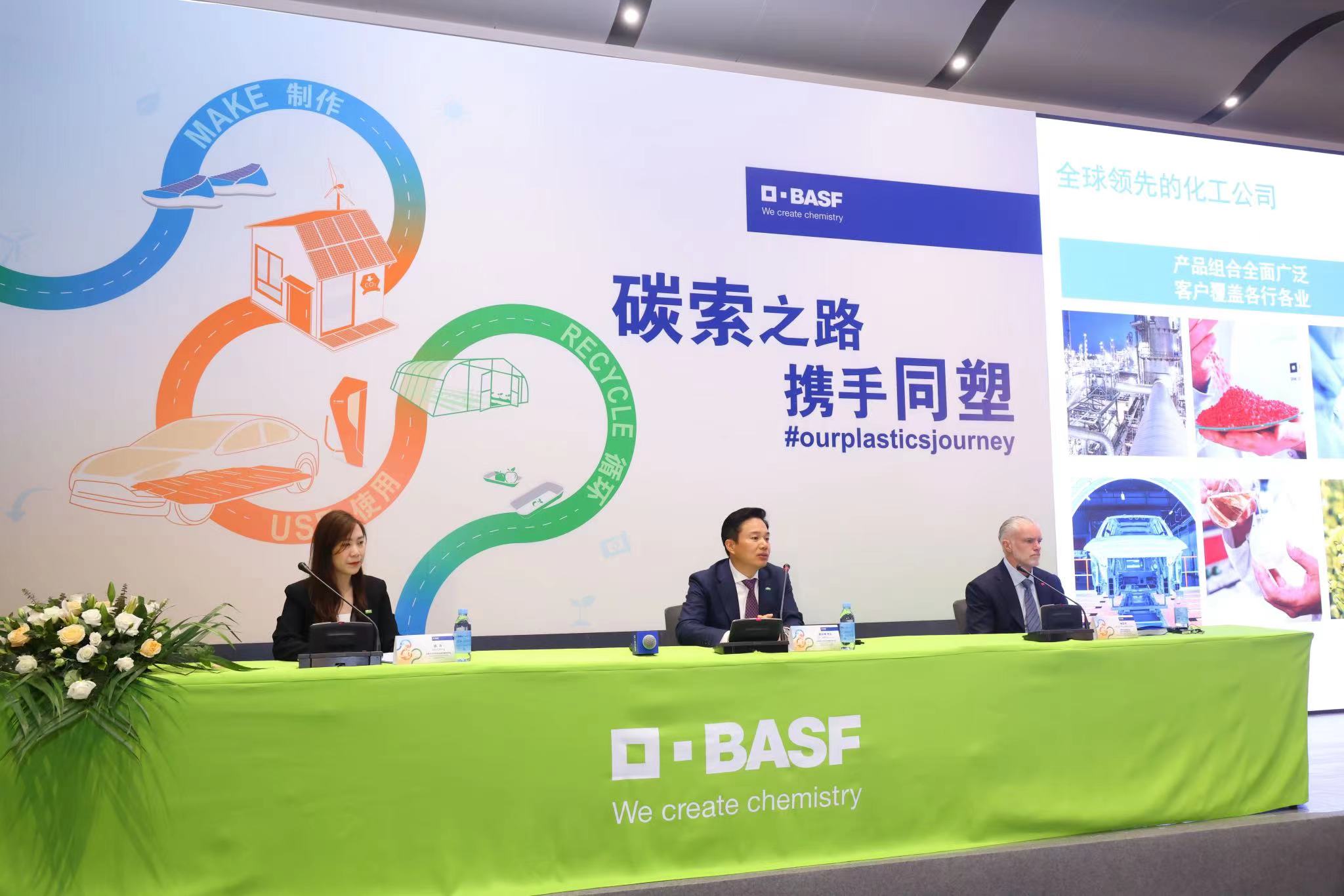 BASF Steps Up Investment in China to Tap Country’s Low-Carbon Shift
BASF Steps Up Investment in China to Tap Country’s Low-Carbon Shift(Yicai Global) April 26 -- To seize the opportunities brought about by China's low-carbon transition, chemicals giant BASF is boosting its investment in the country to promote the green production and application of more chemical products in the German company’s second-biggest market.
The thermoplastic polyurethane plant at BASF's Zhanjiang integration project in Guangdong province will become operational in the second half of this year, Andy Postlethwaite, senior vice president of performance materials in the Asia-Pacific region, said at the 35th International Exhibition on Plastics and Rubber Industries held in Shenzhen last week.
As one of the world's largest TPU production lines, it will focus on demand from the new energy vehicle and electronics sectors, Postlethwaite said at the annual plastics and rubber trade fair also known as Chinaplas.
The Zhanjiang complex has planned investment of EUR10 billion (USD11 billion), and it is likely to be finished by 2030. The first set of production units, which can supply 60,000 metric tons of engineering plastics compounds annually to the Chinese market, was brought onstream last September.
TPU and engineering plastics are heat-resistant, highly fire-retardant, and very stable and can be widely applied in the electric vehicle sector, serving as battery panels, charging guns, and cables, Postlethwaite told Yicai Global. BASF has joined hands with Chinese firms such as Gotion High-tech to develop solutions, he noted.
China is working to achieve peak carbon dioxide emissions by 2030 and carbon neutrality by 2060. BASF has also set targets to reduce CO2 emissions by 25 percent between 2018 and 2030 and achieve zero net CO2 emissions by 2050, BASF China Chairman Lou Jianfeng also said at Chinaplas 2023.
BASF has invested over EUR9 billion (USD1.1 billion) in the Chinese market, having 30 production bases and more than 11,000 employees.
To achieve its goals, BASF will only use renewable energy at the Zhanjiang complex once the project's first phase is completed by 2025 and will further cut carbon emissions by optimizing production processes, digital management, and recycling renewable raw materials, Lou pointed out.
BASF is also expanding its Nanjing integration complex, in which it holds a 50 percent stake, Lou said to Yicai Global. Chinese petrochemical giant Sinopec owns the rest. The third phase of the Shanghai innovation park, the Ludwigshafen-based firm's research and development hub in the Asia-Pacific region, is expected to be completed by June, he added.
As the world's largest chemicals market, China accounts for 45 percent of global production, which is likely to reach 50 percent by 2030, Lou said. BASF's sales in China stood at EUR11.6 billion (USD12.8 billion) last year, equal to just 13 percent of the firm's total revenue, indicating much room for growth, he noted.
Editor: Martin Kadiev